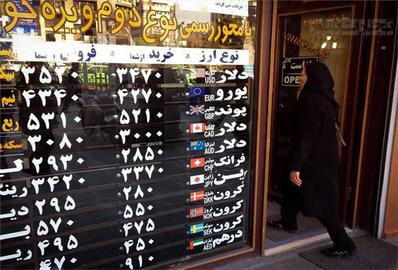The lawsuit I have filed with the US Federal Court against Ali Khamenei and the Revolutionary Guards might be difficult to grasp for the generations who have come of age in recent years, and who have not witnessed the sickening spectacle of my husband Siamak Pourzand’s forced confessions being shown on Iranian state television. So I must clarify the picture a little first.
My husband Siamak Pourzand was a veteran journalist who, before the revolution, had succeeded in getting Iranians interested in certain aspects of western civilization and culture by introducing them to Hollywood cinema. When he was an adolescent, he started a ciné club in Tehran, where he screened quality western movies and hosted film criticism events. It was a venue for critics to communicate their views and to enrich the minds of young people by understanding the art of cinema. His journalistic life was focused on promoting and facilitating discourse on cinema.
Siamak Pourzand had a life of ups and downs. Like many Iranians, he had a negative view of the revolution. In the excitement of the revolution, such views were either ignored or they were so unwelcome that the [authorities] would slander anybody who did not like Khomeini and his crowd, accusing them of dozens of crimes. At one time Siamak was the Hollywood correspondent for the respected pre-revolutionary newspaper Kayhan and it published photographs of him with actors and a number of American politicians and presidents. His name appeared in most Iranian journals on cinema.
When Khomeini and his associates conquered Iran, newspaper archives and other archives were placed at their disposal. The revolutionary press made Siamak Pourzand into a symbol of the “counter-revolution.” He was repeatedly imprisoned for short periods of time and was then released on bail. For 10 years he stayed at home and, afterward, whenever he found a job, his employer would receive letters and phone calls from anonymous soldiers of the Islamic Republic until the employer was forced to fire Siamak.
A Broken Man
For years, this was how our life went on. They would make up an excuse to arrest Siamak and even after he was released a suspended prison sentence and a bail guarantee hung over his head. But, beyond this, what would exhaust the family was when an employer apologized that he could no longer work with him. Once again he had to suffer sitting idly at home and simmering with anger.
These are the events that led to Siamak’s death — or murder.
After I was released on bail after 54 days of detention on the charge of participating in the Berlin Conference in 2000 [a three-day social and cultural conference on reform in Iran organized by the Heinrich Böll Foundation], a medical examination found that I was suffering from a malignant and advanced type of breast cancer. European governments still enjoyed some influence on the Islamic Republic and after a series of negotiations, I was permitted to leave Iran for a limited duration.
In an unjust trial I was sentenced to four years in prison on two counts of the five charges brought against me. I appealed, entrusted my law office to a colleague for a limited time, and left Iran with my 16-year-old daughter Azadeh.
After three months in the US as I was attending to the residency status of my daughter, I received the news that Siamak had been abducted somewhere around his sister’s home. We had no news of him for a long time until he appeared on Islamic Republic television — confused, scared and obviously subjected to torture. As his court-appointed lawyer Dabir Daryabeigi was sitting next to him, he confessed to activities, none of which were true. Reportedly, Siamak, who was 70 years old at the time, was subjected to brutal and humiliating torture that left him with no residue of his human dignity. Via my computer I could see that he was a broken man and, since I knew him well, he was so broken that it appeared he would never heal.
A Hostage and a Political Pawn
After a few more TV confessions, Siamak disappeared once again. He had been abducted by the intelligence service of the police, who had tortured him and had extracted the confessions that they wanted. But now he changed hands among various security services and ended up in the hands of the Revolutionary Guards’ Intelligence Organization, which wanted to squeeze him for more confessions. Siamak disappeared for two months. He later said that he was being treated in an army hospital under the name of “Ali Samadi” for injuries and infections that he had suffered as a result of torture.
For a year and a half he was detained under inhumane conditions in secret prisons, barracks and garrisons. After pressure from the ambassadors of some European countries, Iran’s non-independent judiciary released him for four months. For two of these four months Siamak was still suffering from a damaged mind and could not even remember that he should bathe or eat his food with a spoon and a fork. I cannot imagine what they had done to him. Two months after he returned to normal he was arrested again and, this time, he was sent to Evin Prison’s Ward 350.
He had to deal with various illnesses in prison and to live his old age under the worst possible conditions. Eventually, after he had a heart attack and a nervous breakdown, he was hospitalized at Modarres Hospital, but his feet were chained to the hospital bed. He was their hostage. The faction that had issued my permit to leave the country in order to raise international pressure now had to cope with the displeasure of a rival faction [the reformists]. To avenge itself, it wanted, on one hand, to extract forced confessions from Siamak and convince the public that he had received millions of dollars from the American government and had distributed the money among the reformists and, on the other hand, to use him as a hostage to force me to return to Iran and meet the same fate.
Khamenei Thanks the Torturers
International pressure meant that Siamak was not returned to prison. He went to his sister’s home and was confined to bed. Yet he had received no ruling from the judiciary to make him believe that he was free. And family members could not believe that this precarious freedom would last. His relatives, both inside and outside Iran, were worried about how it would all end. Time passed and Siamak was directly and indirectly harassed by security agents. In a speech, Khamenei himself expressed his satisfaction with the fictitious story that the security forces had fabricated and gave his thanks to the torturers who had forced Siamak to make bogus confessions.
Siamak Pourzand had a difficult life during his freedom, essentially living under house arrest. He had nightmares and missed his children horribly. But the security agents never left him alone. On top of this, he had lost his friends as well. His friends in artistic and cultural circles were deeply hurt by his forced confessions [that implicated] them. They would hide from him. The destructive feeling of shame eventually crushed him. He either committed suicide out of anger and in response to demands made on him by security agents or, as some say, they “suicided” him. Whatever it was, they had a noble human being in their claws for close to 10 years. Every time we tried to get him out of the country we encountered obstacles.
For quite a while parliament’s Article 90 Committee [responsible for investigating complaints against the judiciary] did a good job of investigating my complaint regarding the illegal arrest and trial of my husband. Mr. Mehdi Karroubi gathered evidence about every aspect of his illegal arrest and, in a four-hour meeting with Siamak’s sister Ms. Mahin Pourzand, he listened to every detail and wrote them down. When the case against the judiciary and the security forces was ready to be submitted to a public session of the Sixth Parliament [2000-2004], Khatami’s intelligence minister, Ali Younesi, who, for six months had allied himself with the institutions responsible for torturing Siamak, sent a letter to the presiding committee of the parliament. By raising made-up charges against Siamak, he asked the parliament not to bring up the case in a public session. He added that revealing the lack of due process in this case was not in the interest of the regime. For close to a decade, his closest family suffered, victims of a fire hardly anyone else knew about.
He had been forced to make false confessions against his wife as well and, as a result, I also lost a lot. I have lost my job and my job security and have lived my life outside my country in fear and in an unstable situation. I have had to deal with my daughters’ deprivation during their sensitive stages of youth and puberty. I lost my country, my profession and my friends in Iran when I was 58 years old. I have witnessed the repeated emotional and psychological shocks that my children receive every time they read something in Iranian media or hear quotations from other prisoners. The worst part is that by forcing my husband to make false confessions, they have stolen Iran away from me. They have inflicted numerous emotional and psychological damages that are immeasurable.
It is the right of anybody who has suffered injustice to ask for justice. Siamak always said that he expected a “truth commission” and when he learned that I had no such hope he would say, “even if I don’t survive to see it, use every opening to tell people about the injustice done to me.”
Behind these few lines that I am writing instead of issuing a press statement lies a big story that will weigh heavily on the shoulders of Siamak’s close relatives for the rest of their lives. I have tried to explain a small part of the story, which was my motivation for filing a lawsuit with the US federal court.
Never Forget
My first motive is to fight against forgetting. The second motive is to insist that asking for justice is part and parcel of fighting for justice. Third comes asking for damages, both to the finances and to the honor of a wife who for 10 years tried and failed to save the father of her children from the terrorists who run the official and unofficial prisons of the Islamic Republic of Iran. I have filed a lawsuit against a government that supports terrorism and against the Revolutionary Guards, which has been declared a terrorist organization. Seyed Ali Khamenei is the head of this government, a person who is officially granted absolute power by the constitution and is ultimately responsible for all injustices and all violations of the law.
If I win, then a window of hope will open to all victims of justice who can appeal to this court of law. And if I lose, I will still leave this world behind me with a clear conscience. I will be happy because I have been able to give voice to one of the innocent Iranians who have been tortured inside the prisons of the Islamic Republic and have no witness other than the walls around them.
A people who have no recourse to seek justice in their homeland have the right to seek justice wherever else they can.
Related Coverage:
Mehrangiz Kar: Self-Censorship Is Addictive, May 8, 2017
Lawyers Must Speak out for Baha’is, September 29, 2015
50 Iranian Women you Should Know: Mehrangiz Kar, August 27, 2015
“Only One Article In The Constitution Matters”, February 20, 2015
“Concubines,” “Prostitutes,” and "The Powerful”, February 20, 2015
“Nine Years of Living Hell”, February 20, 2015
visit the accountability section
In this section of Iran Wire, you can contact the officials and launch your campaign for various problems




















comments